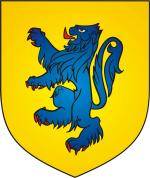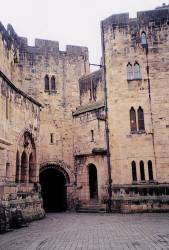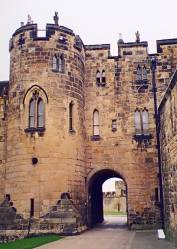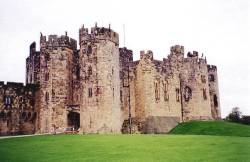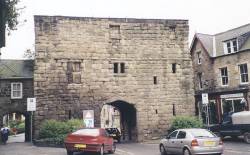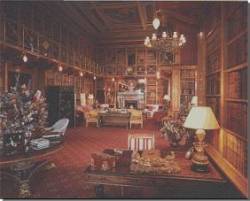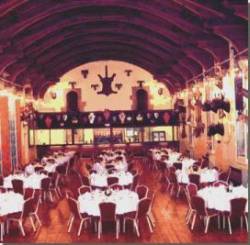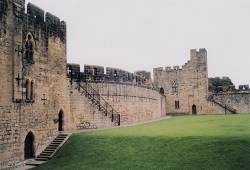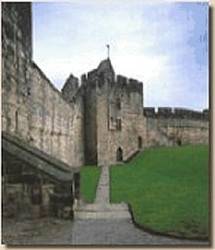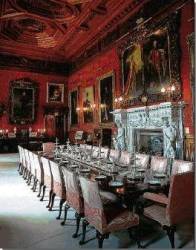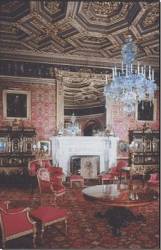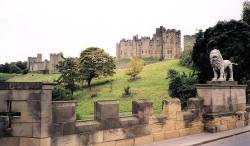

 Henry de Percy 8th Baron Percy & 1st Lord Percy
Henry de Percy 8th Baron Percy & 1st Lord Percy 


General Notes
8th Baron de Percy.
First Lord Percy of Alnwick (1309 - 1315).
Purchased Alnwick Castle in Northumberland and the title of Baron of Alnwick from William de Vescy in 1309.
Fought with King Edward II of England at the Battle of Bannockburn against King Robert The Bruce of Scotland. The Scots triumphed and set Scotland free from English rule for 400 years until 1745.
It was the third Henry Percy who purchased Alnwick Castle in 1309 from Antony Bec, Bishop of Durham and guardian of the last De Vesci, and from that time the fortunes of the Percies, though they still held their Yorkshire estates, were linked permanently with the little town on the Aln, and the fortress which commanded and defended it. The fourth Henry Percy began to build the castle as we see it now; but to call him "the fourth" is a little confusing, as he was the second Henry Percy, Lord of Alnwick. On the whole, it will be clearer to begin the enumerations of the various Henry Percies from the time they became Lords of Alnwick. It was, then, Henry Percy the second, Lord of Alnwick, who began the re-building of the castle; he also was jointly responsible for the safety of the realm during the absence of Edward III in the French wars, and in this official capacity he helped to win the battle of Neville's Cross. His son, Henry Henry, married a sister of John of Gaunt, and their son, the next Henry Percy, was created Earl of Northumberland, which title he was given after the coronation of Richard II. Nor was this all, for he was that Northumberland whose doings in the next reign fill so large a part of Shakespeare's Henry IV, and he was the father of the most famous Percy of all, Henry Percy the fifth, better known as "Harry Hotspur." Hotspur never became Earl of Northumberland, being slain at Shrewsbury in the lifetime of his father, whose estates were forfeited under attainder on account of the rebellion of himself and his son against King Henry IV.
Henry V restored Hotspur's son, the second Earl, to his family honours, and the Percies were staunch Lancastrians during the Wars of the Roses which followed, the third Earl and three of his brothers losing their lives in the cause. The fifth Earl was a gorgeous person whose magnificence equalled, almost, that of royalty. Henry Percy, the sixth Earl of Northumberland, loved Ann Boleyn, and was her accepted suitor before Henry VIII unfortunately discovered the lady's charm, and interfered such that Percy lost his prospective bride. He had no son, although married later to the daughter of the Earl of Shrewsbury, and his nephew, Thomas Percy, became the seventh Earl.
Thereafter, a succession of plots and counterplots — the Rising of the North, the plots to liberate Mary Queen of Scots, and the Gunpowder Plot — each claimed a Percy among their adherents. On this account the eighth and ninth Earls spent many years in the Tower, but the tenth Earl, Algernon, fought for King Charles in the Civil War, the male line of the Percy-Louvain house ending with Josceline, the eleventh Earl. The heiress to the vast Percy estates married the Duke of Somerset; and her grand-daughter married a Yorkshire knight, Sir Hugh Smithson, who in 1766 was created the first Duke of Northumberland and Earl Percy, and it is their descendants who now represent the famous old house.
-
Individual Additional Information
-
Associated external link media/ind00002.htm
 Details of Henry de Percy's family with <Unknown>
Details of Henry de Percy's family with <Unknown>
Page last modified
This page is within a frameset. View the entire genealogy report of 8th Baron Percy & 1st Lord Percy families, or surname index of 8th Baron Percy & 1st Lord Percy pedigrees or report summary 8th Baron Percy & 1st Lord Percy heritage from 'Moore, Simpson, Ballard Family Tree - England and Scotland to Australia'.
Family History.
Copyright © 2011 GenoPro Inc. All rights reserved.
